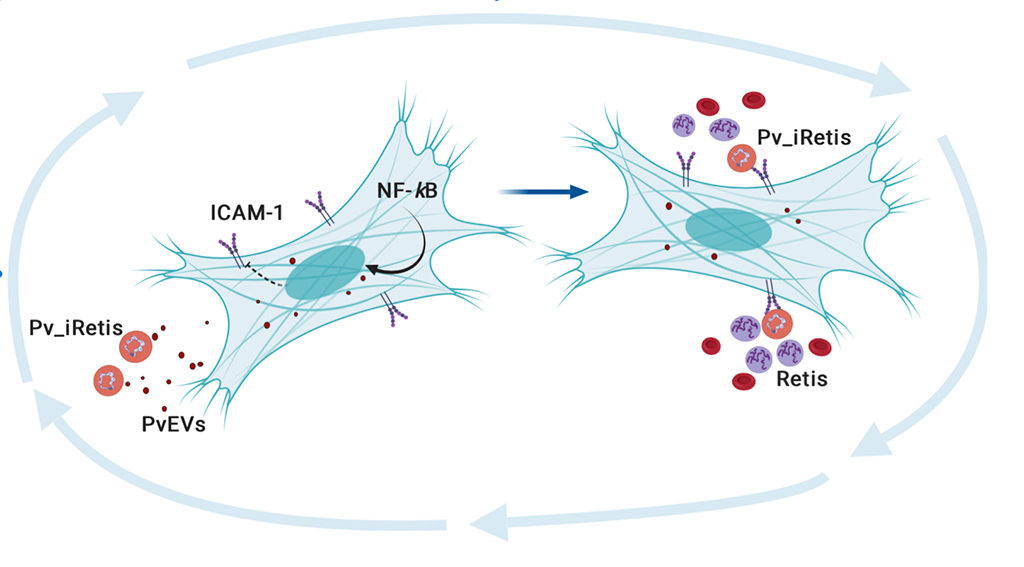Plasmodium vivax is the most widely distributed human malaria parasite, mostly outside sub-Saharan Africa, and responsible for millions of clinical cases yearly, including severe disease and death. The mechanisms by which P. vivax causes disease are not well understood. Recent evidence suggests that, similar to what has been observed with the more lethal P. falciparum, red blood cells infected by the parasite may accumulate in internal organs and that this could contribute to the pathology of the disease.
To understand the molecular mechanisms responsible for this adhesion process, the research turned its attention to extracellular vesicles. These small particles surrounded by a membrane are naturally released from almost any cell and play a role in communication between cells. There is increasing evidence that they could be involved in a wide range of pathologies, including parasitic diseases.
The research team isolated EVs (Extracellular Vesicles) from the blood of patients with acute P. vivax infection or from healthy volunteers and showed a very efficient uptake of the former by human spleen fibroblasts. Furthermore, this uptake induced the nuclear translocation of NF-kB (Nuclear Factor Kappa B) with concomitant expression of a molecule (ICAM-1) on the surface of the fibroblast which in turn serves as an “anchor” for the adherence of P. vivax-infected red blood cells.
These findings reveal, for what we believe is the first time, a physiological role of EVs in malaria and support the existence of parasite populations adhering to particular cells of the spleen, where they can multiply while not circulating in the blood”. “Importantly, these hidden infections could represent an additional challenge to disease diagnosis and elimination efforts as they might be the source of asymptomatic infections.
